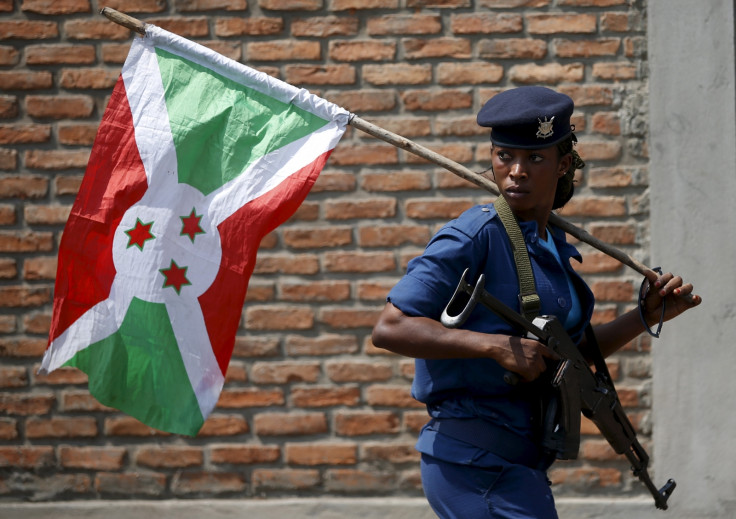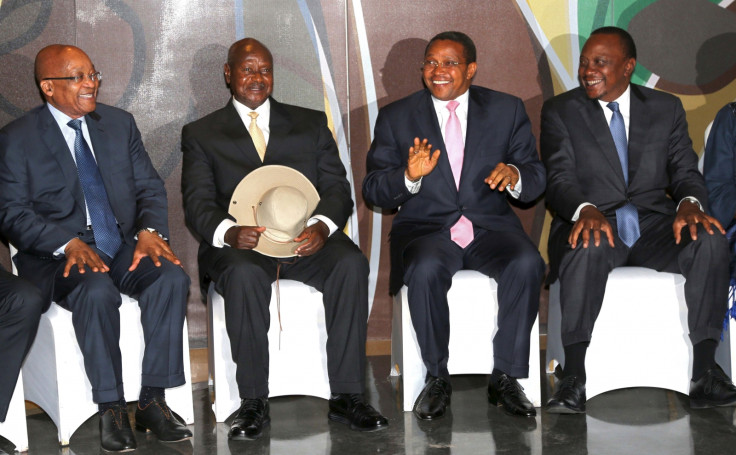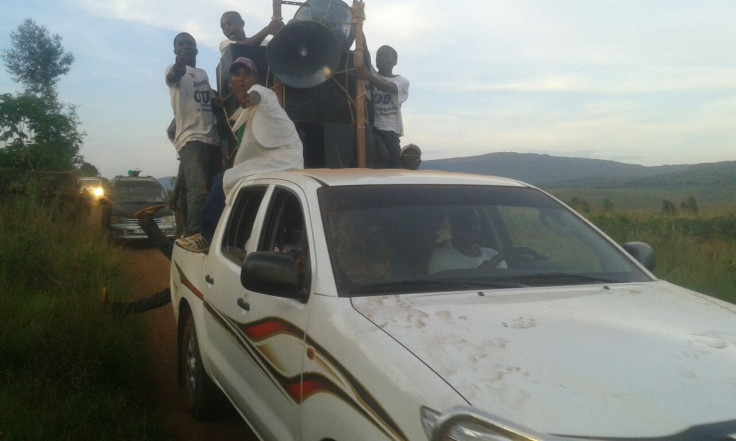Burundi elections: Opposition cautiously welcomes African Union recommendations

The African Union's new recommendations regarding the crisis in Burundi have been cautiously welcomed by the opposition, which claims they somewhat failed to address the issue of the third mandate.
It is estimated between 60 and 70 have died and around 150,000 civilians have sought refuge in neighbouring countries since the start of the violence on 26 April, when Burundi's ruling National Council for the Defense of Democracy (CNDD-FDD) party nominated President Pierre Nkurunziza to stand for re-election.
Opposition leaders want the president to withdraw his third-term bid, claiming it violates the country's constitution and the Arusha Accords, a peace deal that ended ethnic civil war and established the foundation for Burundi's post-conflict recovery in 2005.
But Nkurunziza's supporters argue the president's first term should be discounted as he was chosen by the parliament and not by the people in an election as is specified in the agreement.
Third-term bid issue to be discussed
On Sunday (14 June), meanwhile, the Peace and Security Council of the African Union (AU) published a set of recommendations to end the crisis in Burundi after its meeting in Johannesburg, South Africa.
It is worth noting that neither Nkurunziza, Rwanda's president Paul Kagame and the leader of the Democratic Republic of the Congo (DRC), Joseph Kabila - who all look set to run for third terms in their respective nations - were present at the meeting.
Interestingly, Zimbabwe's president Robert Mugabe, who presided the meeting and is serving his seventh term, said: "If the people decide that the president should do only two mandates, it will be two".
I fear there could be some resistance regarding the postponement of the elections, because if there is a new one, the government might have to throw in the towel.
The AU asked for the resumption of a dialogue between all parties within one week.
"The inter-Burundian dialogue, building on the work already done with the facilitation of the UN, shall focus on the measures to be taken to create conditions conducive to the organization of free, fair, transparent and credible elections, as well as on all the matters on which the parties disagree," the AU said.
The third term was not directly cited in the document, however, but "all matters on which the parties disagree" refers to the question of the issue.
While the opposition welcomed the recommendations, it also had some reservations.
"For us (the opposition), the idea of urgency about resuming the dialogue is a good thing, because it means we'll have the opportunity to address all our problems," Frederic Banvuginyunvira, vice-president of opposition party the Front for Democracy in Burundi (known by its French acronym Frodebu), told IBTimes UK on Monday (15 June).
"In principle, the recommendations are good, as long as they are applied and that there is no resistance on the government's side. I fear there could be some resistance regarding the postponement of the elections, because if there is a new one, the government might have to throw in the towel."
After agreeing to discuss the issue surrounding his third-term mandate on 4 June - for the first time since the country was engulfed in political violence - the government said on 9 June that the third-term bid was "non-negotiable".

Government spokesman Philippe Nzobonariba said in a radio broadcast there was no chance of the president standing aside.
"This decision is non-negotiable," he said.
On 3 June, the United States urged Nkurunziza to adhere to the Arusha Accords by stepping down, after two terms in office.
Election date set by consensus and UN evaluation
Recommendations also included a postponement of the elections, which date "will have to be set by consensus and on basis of a UN technical evaluation".
This proposal would put an end to unilateralism and would be the first time the responsibility of setting out election dates would be transferred away from Burundi's independent national electoral commission (CENI), which announced its new calendar for the country's controversial elections on 8 June.
The parliamentary election had been planned to take place on 5 June and presidential poll on 26 June but both were delayed amid security fears.
While legislative and municipal elections will be held on 26 June, the embattled presidential elections are now planned for 15 July.
The head of the electoral commission, Pierre-Claver Ndayicariye, said the proposal to hold the presidential election on 15 July was in line with recommendations made by East African leaders.
However, if Nkurunziza maintained a decree signed on 9 June regarding the postponement of the elections, this would mean defying the AU.
Immediate deployment of human rights observers

In their recommendations, leaders of the AU called for an "immediate deployment" of human rights observers to Burundi and asked for the government's full cooperation.
"[The] council reiterates its call to the government of Burundi to extend its full cooperation to this process," the statement read.
Under this proposal, the oversight of the security during the electoral process would no longer be the responsibility of the government, but that of the AU.
The council also said it would determine the deployment of AU "military experts", both from the region and other regions of the continent, to verify the disarmament of the country's "militias and other armed groups".
These include the members of the ruling party National Council for the Defense of Democracy (CNDD-FDD)'s Imbonerakure youth wing.
"This group of experts, whose strength shall be determined by the Chairperson of the Commission, in consultation with the region, will submit regular reports on the implementation of the disarmament process," the AU said.
A local Burundian journalist, however, said the recommendations were "long", but that "there is not concrete announcement to come out of the crisis".
The AU meeting followed the publication of a confidential report from the East Africa ministers of justice and attorney generals that caused a stir when it was made public on 12 June, after it concluded Nkurunziza's third term is unconstitutional.
EAC Attorneys gnrls: 3rd term is unconstitutional. Foreign Affairs Min: best option is Nkurunziza withdraws. #Burundi pic.twitter.com/jwR9hsBYNb
— Thierry Uwamahoro (@ThierryU) June 12, 2015© Copyright IBTimes 2025. All rights reserved.






















